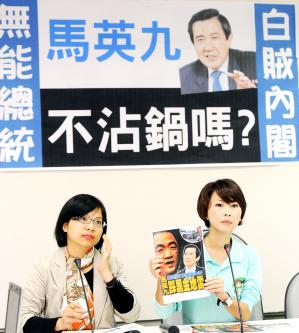Relations between Taiwan and the US are an important issue and are given serious thought by many in the US, in Taiwan and elsewhere. Most of these emphasize the shared values between the two countries, Taiwan’s ascendance to democracy or the country’s strategic value in the western Pacific.
We have also seen some irresponsible ideas floated, such as those by George Washington University professor Charles Glaser, who thinks that by reducing the US’ commitment to Taiwan, it could get China to be cooperative in other areas, such as Iran or North Korea. I have maintained that these arguments are short-sighted and uninformed.












